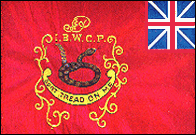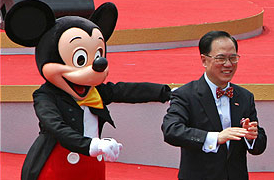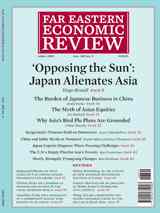


Christine Loh’s trouble-making Civic Exchange think tank continues its unending quest to undermine respect for the Government by producing smart-ass policy proposals. This time, it is a plan to reduce Hong Kong’s air pollution within 24 months. As with its policy papers on the Central waterfront, the electricity industry, constitutional reform and much else, the group implicitly attacks our officials. It damages morale among civil servants by presuming that outsiders have the capability to formulate policy and the right to present such ideas to the public as if they were somehow on an equal basis with those of trained professionals. It further humiliates our hard-working and selfless Civil Service by employing such reckless methods as lateral, critical and creative thinking. This enables Civic Exchange to produce initiatives that strike many taxpayers – who don’t understand the realities like Administrative Officers do – as actually superior to those of the Government. This is extremely disturbing. The group’s recommendations blatantly disregard the interests of various sectors, focusing instead on the well-being of the population as a whole – a recipe for unimaginable disruption to our stability and prosperity. Mercifully, as a reassuring thud-thud noise emanating from Lower Albert Road reminds us, there is a time-honoured way to manage this threat. Like every other publication by this pesky mob of arrogant citizen-action, civil society fanatics, it will be cast with amused contempt into the nearest bin within seconds of being dropped on any bureaucrat’s desk.
Tue, 12 Sep
In recent years we have had the Pan-Pearl River Delta Regional Cooperation and Development Forum, the 2004 Hong Kong Economic Summit – Leveraging on the Mainland & Engaging Ourselves Globally, the Hong Kong/Guangdong Cooperation Joint Conference, the Closer Economic Partnership Arrangement, and too many other talking shops and symbolic institutional structures for bandwidth to accommodate. Somewhere out there, we also have a Commission on Strategic Development, which has a Committee on Economic Development and Economic Cooperation with the Mainland. And now we have the Economic Summit on China's 11th Five-Year Plan and Development of Hong Kong, with the usual, depressingly predictable list of participants.
The common threads running through all of these events and initiatives are hand-wringing, even alarming, doubts and fears about Hong Kong’s future economic ‘positioning’, and constant mutual assurances that ‘integration’ with the Mainland will save us. There is a Gordian knot of subtexts...
# Laissez-faire affectations are out. The Hong Kong Government now has the leading role to play in plotting our future economic course, and that role may be to beg Beijing for assistance or protection. Ability to arrange favours from the Central People’s Government, such as an ever-increasing stream of ragged Mainland tourists or creaking companies seeking IPOs, is a key requirement of local leadership. The importance of foreigners to the local economy is waning.
# We must cling to our existing strengths – financial services, tourism, the port – however tenuous some of them may be getting. Failing that, we must look to our past and see if we can go back to having a manufacturing base. Alternatively, we can consider Singapore-style planning, in which officials attempt to pick and subsidize winners in glamorous-sounding space-age tech-type industries. Under no circumstances will we make space for any new industries or players by scrapping the high land-price policy, cutting spending on unnecessary infrastructure, trimming the bloated public sector or anything else that threatens the interests of the civil service-property cartel regime.
# Mainland cities that are developing fast from their old, low bases do not despise us for being un-taxed crybabies looking for free lunches from Beijing. They do not take delight in seeing us held back economically by our frozen political structure. They take no pleasure in gaining competitive advantages in more and more of our blue-collar and white-collar activities while we stand still. They do not drool at the thought of getting their hands on our vast financial reserves in the guise of cross-border development schemes. They do not hate our guts. They love us, and if we have enough partnership, integration and cooperation, we will all live happily ever after.

Wed, 13 Sep
“That stupid diary of yours – it was actually quite good on Monday.” Pleasantly proportioned Administrative Office Winky Ip eases herself into the opposite seat at the Foreign Correspondents Club. “But then yesterday it went back to being total rubbish.” I ask her why, and she looks at me in amazement.
“The Greater Pearl River Delta Business Council!” she blurts out. “How could you miss out the Greater Pearl River Delta Business Council? They were the first people to realize that Hong Kong should grasp the opportunities presented by China’s 11th Five-Year Plan!”
Seeing my bewilderment, she uses her extensive Civil Service training to explain everything in a tone of voice so condescending that it drives the waitresses away. “It was the Council’s perception that led to the Economic Summit on Monday. And the participants there recommended…” She glances down at something in her lap. “… numerous strategic measures with great foresight and insight. And in the coming months they will develop a pragmatic and feasible action agenda for the Government, the business sector and public organizations. The implementation timetable of these measures will match the 11th Five-Year Plan period.” She looks up at me again. “You see now? The action agenda will form the economic strategy for the next five-year term of the Hong Kong Government.”
I think I start to get it. This is to do with the Chief Executive’s declaration that positive non-interventionism was a poisonous theory pushed by capitalist-roaders in our schools. “Exactly,” says Winky, glancing at her crib sheet again. “We now realize that the Hong Kong Government needs to take the initiative and identify areas where Hong Kong can contribute to the nation.” She looks up again and smiles.
I am so excited that I think I will nominate Sir Bow-Tie for a Shaw Prize – the grand award that recognizes outstanding achievements among Mainlanders and a few other people and compensates them for their mysterious and tragic inability to win a real Nobel by giving each of them a million bucks left over from the glory days of the Hong Kong film industry. It will somehow make everything complete.

Sir Run-Run (without pausing) – “The one that made the most money.”
The new-look, Foreign Affairs wannabe Far Eastern Economic Review can finally look its critics in the face. Like any publication of integrity, it is being sued by the drooling geriatric despot Lee Kuan Yew, Singapore’s de facto President for Life. When I read the magazine’s interview with opposition politician Chee Soon Juan a few months ago, it crossed my mind that this might happen. Chee mentioned the National Kidney Foundation scandal, in which the leadership of an institution supposedly founded for the public good massively overpaid themselves, lived in luxury and issued defamation suits against nosy outsiders – in other words, acted just like the Lion City’s government. And he gave his opinion, as he has before, about the country whose ruling family have sued him, had him declared bankrupt, and had him jailed.


AT LEAST this sort of thing can’t happen here in the Big Lychee. But then again… Subscribers of Netvigator are finding only a blank white screen – no error message – when they try to look at Not The South China Morning Post. Users of other ISPs have no problem (and there are always the Google cache and browseatcollege.com). NTSCMP is not hosted on Netvigator, which is owned by PCCW, which is owned by Richard Li, who is son of Li Ka-shing, who is owner of Park N Shop supermarket chain, which often joins the SCMP, monolingual local government notices and many other fine Hong Kong institutions under the website’s unforgiving eye. NTSCMP visionary elder statesman Dr George Adams sees plain censorship at play. If so, as FEER might note, it is a sign of success, and probably a boost to readership
Fri, 15 Sep
I am not accustomed to asking the two Filipino elves if they felt the earth move last night, but I find myself doing so when they report for duty at Perpetual Opulence Mansions this morning. I get good-natured sneers. “That was nothing! In my province that happens every day, and we get big ones most months when lots of houses collapse and people are crushed.”
The other shrugs. “You’re lucky there! Where I’m from, we get huge tremors all the time. Hens stop laying eggs, herds of elephants stampede inland, there are strange lights in the sky, and then the ground bounces up and down and whole villages are swallowed up. And it rains fish. And we have a volcano in the middle of a lake, and one day that will blow up and kill millions of people.”
To my relief, the Mid-Levels Escalator is abuzz with mature accounts reflecting the true seriousness of the Great Hong Kong Earthquake of 2006. “I was sitting in bed reading,” I tell several of my fellow commuters, “and I heard a distant rumbling noise lasting four or five seconds. It wasn’t like thunder – the sound was even. And I could feel a slight shuddering. My immediate thought, after all the rain recently, was that it was a landslide, and some tower block was slipping down a hill.” Mr Wong the banker describes how he was sitting at home and heard a distant rumbling noise lasting four or five seconds and felt a slight shuddering. Mr Lee the teacher says he was watching TV and didn’t notice anything. Then Ms Chan the marketing manager tells us how she heard a distant rumbling noise lasting four or five seconds and felt a slight shuddering. It doesn’t get much more exciting than this.
RE-READING THE article that has Lee Kuan Yew frothing at the mouth, I think I can safely predict that the Far Eastern Economic Review’s editor will not – assuming he is sane – be setting foot in Singapore this side of Chee Soon Juan’s colour revolution. At least three times in the piece, the writer (let alone the interviewee he quotes) essentially suggests that Lee’s administration might be corrupt. He ponders “whether Singapore deserves its reputation for squeaky-clean government,” describes the refurbishment of public housing in districts that don’t vote for the opposition as “a bribe,” and postulates that the courts might be used to “cover up misdeeds.” Even by his thin-skinned, intolerant, tantrum-prone standards, Lee Kuan Yew is notoriously sensitive to the slightest insinuation that he or his crazed, family-run experiment in equatorial urban sheep rearing with Confucian characteristics might be in any way crooked. Almost excessively so, some may think.
TWO HONG Kong ISPs now appear to be blocking their subscribers’ access to the mild-mannered and inoffensive NTSCMP website, the second one being HGC Broadband. Wherein the ‘H’ stands for Hutchison, owned by Li Ka-shing, daddy of Richard, owner of PCCW, operator of Netvigator, etc. Hutchison also owns Park N Shop supermarkets, whose lemon tarts recently attracted less than flattering attention in one of NTSCMP’s many forays into fearless, groundbreaking investigative journalism.
Am I alone in thinking that there would be so much less friction in the world if members of China’s extensive Lee/Li clan weren’t so easily upset about innocent remarks concerning their public housing upgrades and pastries?



